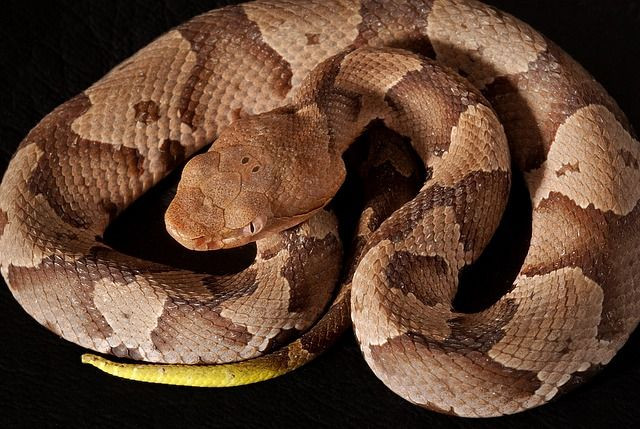Woman Under Cancer Treatment Bitten By Deadly Snake While On Vacation With Family In Arkansas
KEY POINTS
- Copperhead snake attacked the woman without warning
- Woman described the bite as an "electric shock"
- Her chemotherapy had to be stopped for few days
A woman with Stage IV Cancer was bitten by a venomous snake while hiking with her family in Jasper, Ark., last week.
The woman, identified as Laura Lewis, was on a vacation with her family when the incident took place. Lewis, who was wearing open-toed shoes, was showing her daughter a frog when the copperhead snake, which was camouflaged, attacked her without warning.
Describing the bite as an "electric shock," Lewis told kY3 News on Friday, "The second you get struck, you know exactly what hit you. I looked down, he was curled up watching me."
"I got bitten on the big toe, and it started going up my foot, the swelling and the itching," Lewis told the outlet.
Lewis’ chemotherapy had to be stopped for few days, as advised by her doctor, while the venom ran its course in her body, the outlet reported.
"It was super scary for me, being on chemotherapy because I don’t know what the outcome is. I know my blood work is low," Lewis said.
Luckily, the swelling stopped in the next three days because of which she didn’t need an antivenom. However, as of Friday, the woman continues to use a wheelchair as she is still unable to put her entire body weight on her foot which was bitten by the reptile.
Copperhead is one of the most common venomous snakes found in Eastern North America. The snake’s venom can cause neurological symptoms and can also result in temporary tissue damage in the area bitten by the snake.
Speaking to kY3 News about snakebites, Dr. Gerald Diskin, a physician for Mercy Hospital in Springfield, Ill., said, "Copperhead bites can sometimes affect your blood count. It can make you more prone to clotting."
The doctor added that snakebites usually tend to be more serious in children.
"Obviously, you’re a smaller human, the venom, you get a larger dose of the venom, it’s going to affect you differently," Dr. Diskin told the outlet, adding that medical attention should be sought as soon as one is bitten by a reptile. "Sucking the venom out, or like putting a tourniquet on the arm, those things don’t show any benefit."

© Copyright IBTimes 2024. All rights reserved.





















